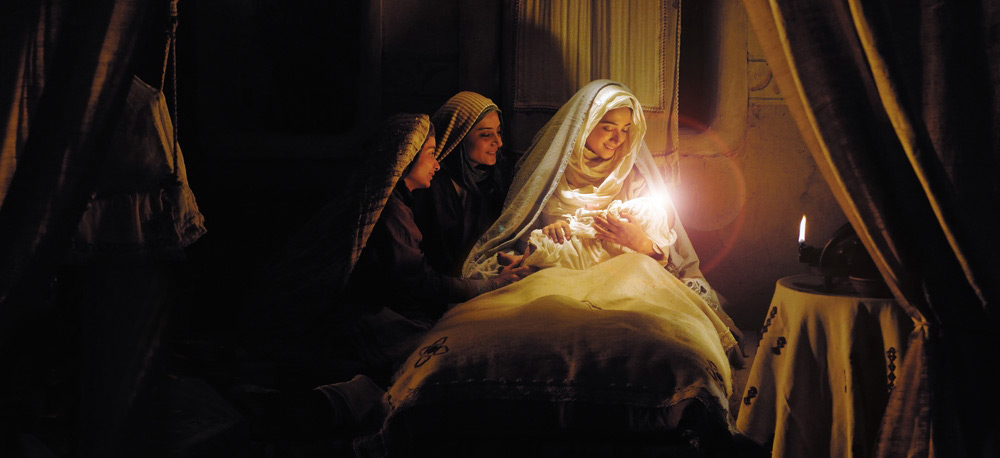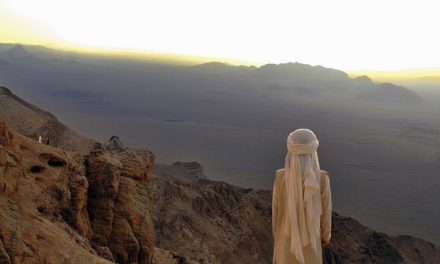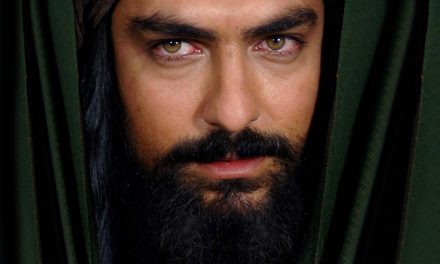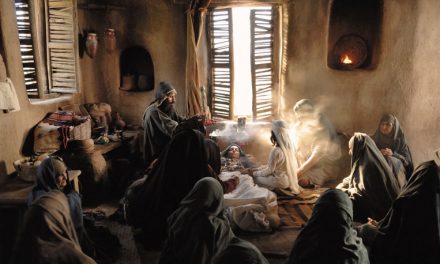In the name of Allah, the Beneficent, the Merciful
A Revealed Image (Third Part)
[A Glance at Muhammad Messenger of God (pbuh) – a Film by Majid Majidi]
A hero’s goals in religious cinema
According to Islamic teachings and the Islamic mysticism, a hero in religious cinema can pursue the following goals:
(a) Knowledge: gaining knowledge, according to Quran, is a special advice given by God to the human, and as noted earlier, the important thing is how this knowledge is used to direct humans.
Humans must know the important role there are supposed to play in the universe and gain knowledge about how to take a position in relation to different situations, and how they are responsible for the blessings of God (the gift of living, thinking); the deepest knowledge gained by human will make him confess to his total lack of knowledge when it comes to real truth; As said by Prophet Muhammad, the greatest man of all times, “O God! We never know you the way we must know you.” This weakness that results from lack of complete knowledge is totally different from the weakness resulting from the shortcomings in today’s cinema. Hence, unlike the usual practice in Iranian cinema, there is no need for creating weaknesses in protagonists to walk the audience along; rather, it is possible to portray a perfect human and then illustrate an inability resulting from deep knowledge. This type of knowledge is clearly present in Muhammad: the Messenger of God. In the first glance, there is no scene depicting little Muhammad praying, we only see him look for knowledge and awareness; however, this increased awareness of God and universe does not result in arrogance and does not lead Muhammad to a dead end; rather, he uses this knowledge to give love to others.

(b)Freedom: Islamic freedom means freedom of attachments; that is freedom from freedom; to be free of anything even the freedom itself. In one word, it means emancipation. The hero here waits for the truth and avoids any doubt and skepticism to keep from falling into the abyss of corruption. Today’s Iranian films are replete with ignorant characters who judge everything based on their deficient knowledge and doubt anything they encounter; they doubt their wives, societies, and even themselves, and eventually they find out they have been wrong about everything and lost their lives over this meaningless knowledge! Islamic freedom means subjection to nothing but the God Almighty; and not to accuse anyone but oneself until the truth is disclosed. Such a worldview will free you from the world and the pain and difficulties it gives you, since such a hero does not hate the world, but believes that this world is not everything. The world brings you pain if you fall into its captivity and gives you benefits if it falls captive to you…This has been well illustrated by Majidi in the characters depicted for Abd al-Motalleb and Muhammad’s uncle, who protect Muhammad while they do not know who he really is and wait for the truth to unfold.
(c) Love: undoubtedly, love is the most dramatic theme in our present cinema; however, love for the hero of an Islamic film should not only be used to create a romantic atmosphere which is typical of the world cinema; rather, the hero must know, or gradually gain this knowledge, that a love that is not based on justice and knowledge, is a great deception for relieving oneself from the responsibility that requires the hero to save the oppressed from the oppressor. The lover in Islamic cinema must be in love with growth and wellbeing, and avoid indifference and compromise; since love burns; it may even create war and dispute, and a lover of the being will not tolerate cruelty; he won’t compromise and avoids indifference. These are depicted in Majidi’s film scene by scene. In the film, Muhammad loves people, and does not settle even with his uncle, Abu-Lahab, when it comes to demanding the rights of people. He also criticizes that great Christian for the oppression his people suffer from. Therefore, love in the Islamic mysticism means love for the truth, and one who loves the truth cannot concede it to the lovers of the material world and the enemies of the truth.
(d)Power: power is the most important theme in cinema. The audience wants the power held by the hero and seeks adventure and control over the natural elements. The contemporary human, surrounded by pain, crises, and afflictions, sees the only solution in an unusual power that can be easily found in the characters depicted by movies. The power can be used to dominate the world. It can ease the pain, serves as opium to keep the human running, even for few hours. This is totally different in the Islamic mysticism where the real power is held by God, and He is the only leader of the world. Any kind of power held by anyone else has been bestowed by God. The hero in Islamic films, therefore, is not conceited by this power since he recognizes that the only way towards the end passes through modesty and reverence, and that this power should only be used to demand the rights of the oppressed; and as the hero dominates, it is time to show his real power: sacrifice. Such demonstration of power by Prophet Muhammad, who dominated himself as well as the universe, is illustrated in Muhammad: the Messenger of God. Little Muhammad carries no weapon but his love, passion, and affection for people, as well as his trustworthiness and finally the Holy Quran. Majidi beautifully depicted a scene where Muhammad throw himself down at the hooves of the horses ridden by Roman soldiers to save the defenseless people in order to assert himself as the savior of Christians. What power did Muhammad need for doing this except for his faith? Faith is the source of power for believers. More importantly, whom did he want to prove by using his power? What did he want to demonstrate? Did he call people to himself or to his God? There is no scene in the film without the presence of God. God was present wherever Muhammad was present. And how beautifully the movie depicts Muhammad’s affection toward his God.
(e) Unity: the unity of being, which means the unity of the creator and the creature, there is no documented explanation in Quran and hadiths, and unfortunately this concept, which has been mistakenly incorporated into Muslims’ mysticism (and not the Islamic mysticism), is more of an emotional, undocumented idea. This idea well fits into Christian beliefs which are still struggling to put forward a reasonable argument for trinity (multitude in unity). This does not mean that filmmakers should focus on the unity of being; rather, they should keep in mind, while characterizing their personas, that since the Prophet could never make his being identical with that of God, therefore no human can reach a position of deity; in other words, a hero of an Islamic film should not use Mulla Sadra’s scriptures and the concept of unity of being as a basis to claim that he is God or his embodiment, since the only key to unity and monotheism, to which Muhammad called people, is to step into the valley of doom and mergence.

[Writed by Sajad Mehregan & Translated by Yousef Qasemi – Thanks to Missis Barkhordari]




